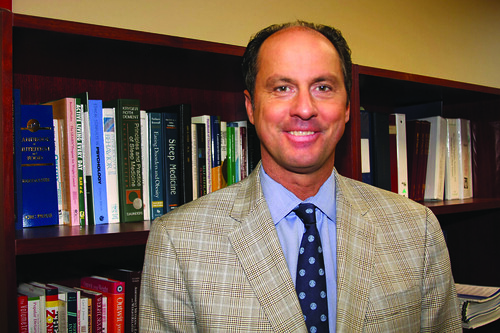
Most people could care less about the habits of obese people, but Dr. Gary Foster, director of Temple’s Center for Obesity Research and Education, is doing something about it.
Slightly more than a third of adults and a fifth of children in this country are obese, according to the Centers for Disease Control and Prevention.
“There is so much prejudice against obese people for very little reason,” Foster said. “I’d like to make people more aware.”
Foster is working on the Healthy Corner Store initiative, a study that explored food-purchase options for families in urban environments. In communities that lack supermarkets, families have to depend on corner stores, which usually only carry prepackaged food and very little fresh produce. The study followed approximately 750 fourth- to sixth-graders from 10 different schools and tracked their purchases at 24 different corner stores.
The results found that the average Philadelphia student purchases more than 350 calories on each visit to the corner store, and nearly a third of them stop twice a day, five days a week, consuming almost a pound worth of additional calories each week.
Foster first started researching the effects of behavior and obesity in 1985, as a research assistant at the University of Pennsylvania. There he earned his master’s degree in psychology, and after that, he came to Temple to obtain his Ph.D. in clinical psychology. His passion for his research, he said, grew as he delved further into it.
“At the start, I was struck by how much people think we know about obesity, compared to what we actually know,” Foster said.
While working on his Ph.D., Foster taught obesity-related courses, such as Obesity & Body Image, at Penn, where he was an associate professor and served as the clinical director of the university’s weight and eating disorders program.
He now concentrates his research on childhood obesity and diabetes. In May 2009, he started the Healthy Study, which has already decreased risk factors for diabetes and obesity for more than 6,000 kids in 42 schools across the country. They ranged from sixth- to eighth-graders and tended to come from ethnically diverse, low-income families.
The study focuses on four different areas of intervention. In 2009, approximately 32 million children participated in a school-lunch program, with about 63 percent receiving free or reduced-price meals, according to the U.S. Department of Agriculture.
Therefore, the study’s first priority was to make school lunches healthier and more nutritious. In addition to improving the quality of cafeteria food, the study also sought to increase the quantity and quality of physical education classes, as well as awareness of childhood obesity through classroom education and a marketing campaign.
“We don’t use the word ‘obesity,’” Foster said. He said there is a certain stigma attached to the word that prevents people from trying to understand the problem.
Foster said he knows it’s difficult to alter children’s eating habits, so he hopes that by bringing healthier, more affordable options to cafeterias and corner stores, there can be change.
“Even if we take only 100 calories a day out,” Foster said, “we move the needle on obesity.”
Manuel Agurto can be reached at manuel.agurto@temple.edu.



Be the first to comment